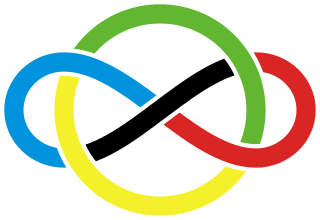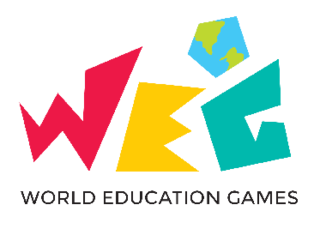 W
WAcademic Games is a competition in the U.S. in which players win by out-thinking each other in mathematics, language arts, and social studies. Formal tournaments are organized by local leagues, and on a national level by the Academic Games Leagues of America (AGLOA). Member leagues in eight states hold a national tournament every year, in which players in four divisions compete in eight different games covering math, English, and history. Some turn-based games require a kit consisting of a board and playing cubes, while other games have a central reader announcing questions or clues and each player answering individually.
 W
WThe American Regions Mathematics League (ARML), is an annual, national high school mathematics team competition held simultaneously at four locations in the United States: the University of Iowa, Penn State, UNLV, and the newly added site at the University of Alabama in Huntsville. Past sites have included San Jose State University, Rutgers University, and Duke University.
 W
WCowbellpedia Secondary Schools Mathematics TV Quiz Show is a Nigerian national mathematics television quiz show that debuted in 2015. It was created by Oladapo Ojo.
 W
WIcelandic Junior College Mathematics Competition is an annual mathematical olympiad first held in the winter of 1984–1985. It is hosted by the Icelandic Mathematical Organization and the Natural Sciences's Teacher Association, and the largest competition of its kind in the country. Its goals include increasing the interest of Icelandic secondary school students towards mathematics, and other fields built on a mathematical foundation.
 W
WThe Integration Bee is an annual integral calculus competition pioneered in 1981 by Andy Bernoff, an applied mathematics student at the Massachusetts Institute of Technology (MIT). Similar contests are administered each year in many universities and colleges across the United States and in a number of other countries.
 W
WThe International Mathematical Modeling Challenge (IMMC or sometimes IM2C) is an international mathematical modeling competition for high school students in team mathematical modeling co-sponsored by COMAP and the NeoUnion ESC Organization. Teams are selected on a country-by-country basis, with each country sending its top two teams to the competition. The IMMC was inspired by the HiMCM, a similar contest sponsored by COMAP but mainly attracting teams within the United States. The HiMCM in turn was established in the 1990s to create a high school counterpart to COMAP’s MCM. Contestants in the IMMC are given five days to research (the contest permits the use of any inanimate source) and write a mathematical paper detailing their mathematical model for a given situation. At the conclusion of the five-day period, papers are sent to an international expert committee composed of mathematics faculty from the world’s leading universities. Traditionally, 3-4 teams are awarded the top designation of Outstanding and invited to an awards ceremony, held in a different country each year.
 W
WThe International Mathematical Olympiad (IMO) is a mathematical olympiad for pre-university students, and is the oldest of the International Science Olympiads. The first IMO was held in Romania in 1959. It has since been held annually, except in 1980. More than 100 countries, representing over 90% of the world's population, send teams of up to six students, plus one team leader, one deputy leader, and observers.
 W
WMath League is a Math competition for elementary, middle, and high school students in the United States, Canada, and other countries. The Math League was founded in 1977 by two high school mathematics teachers, Steven R. Conrad and Daniel Flegler. Math Leagues, Inc. publishes old contests through a series of books entitled Math League Press. The purpose of the Math League Contests is to provide students "an enriching opportunity to participate in an academically-oriented activity" and to let students "gain recognition for mathematical achievement".
 W
WMathematical Kangaroo is an international mathematics competition in over 77 countries. There are six levels of participation, ranging from grade 1 to grade 12. The competition is held annually on the third Thursday of March. The challenge consists of problems in multiple-choice form that are not standard notebook problems and come from a variety of topics. Besides basic computational skills, they require inspiring ideas, perseverance, creativity and imagination, logical thinking, and other problem-solving strategies. Often there are small stories, intriguing problems, and surprising results, which encourage discussions with friends and family.
 W
WA mathlete is a person who competes in mathematics competitions at any level or any age. More specifically, a Mathlete is a student who participates in any of the MATHCOUNTS programs, as Mathlete is a registered trademark of the MATHCOUNTS Foundation in the United States. The term is a portmanteau of the words mathematics and athlete.
 W
WThe World Education Games is a global online event for all schools and students around the world and is held semi annually during the month of October. It is the expanded format of what was once known as World Maths Day but it now includes World Literacy Day and World Science Day too. It is organized by the 3PLearning and sponsored by Microsoft, UNICEF, 3P Learning and MACQUARIE. The World Maths Day holds the 'Guinness World Record' for the Largest Online Maths Competition in 2010. Its Global Ambassador is 'Scott Flansburg' aka the Human Calculator.